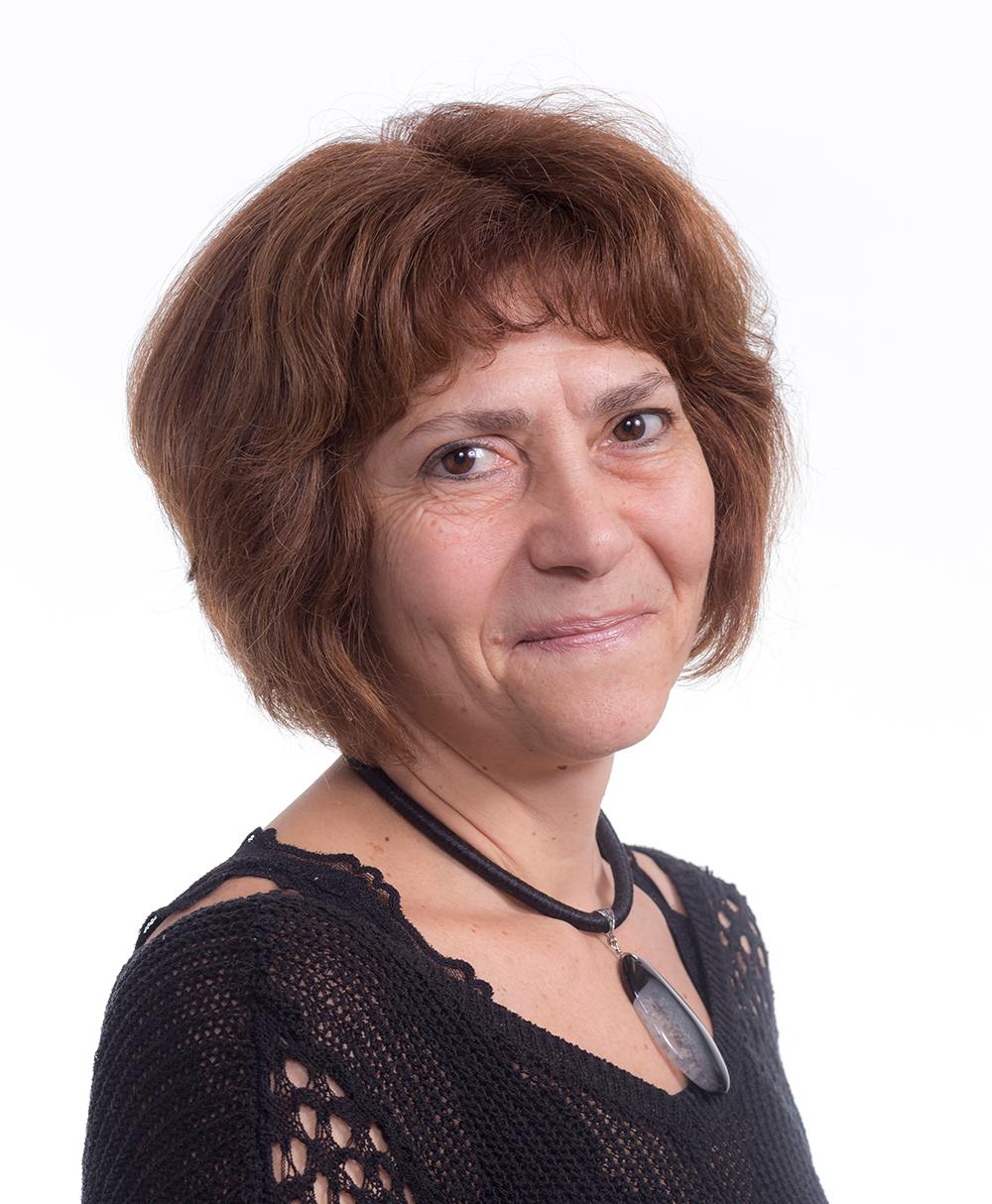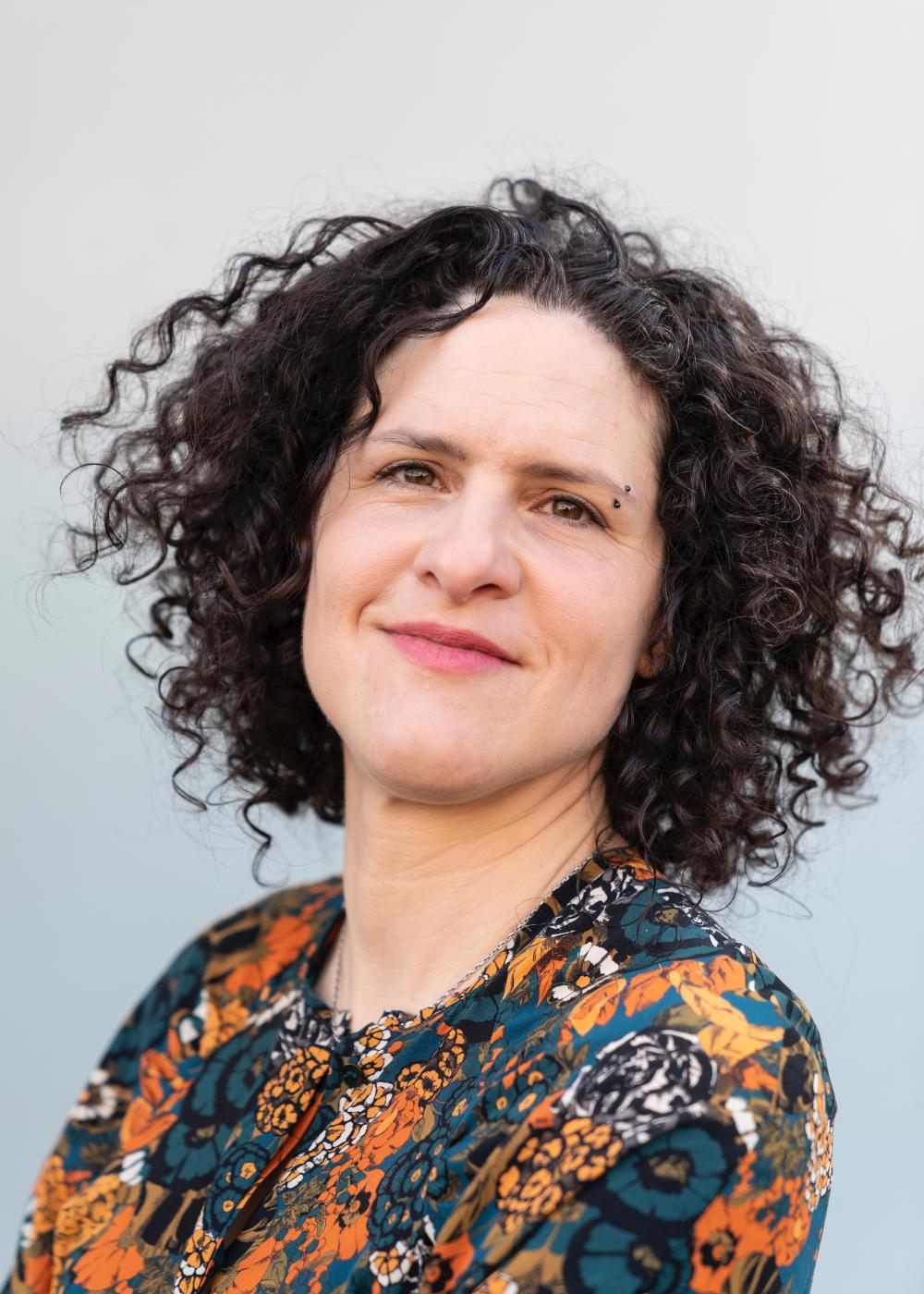Principal Investigators
Principal Investigators
Mila Vulchanova
 Mila Vchanovaul is Professor at the Department of Language & Literature, and the Director of the Language Acquisition and Language Processing Lab, Norwegian University of Science & Technology, Trondheim. She is also the Scientific Director of the Norwegian National Graduate School of Linguistics. Her area of expertise includes language development, developmental deficits, language and cognition, advanced experimental research, language diachrony , the syntax of nominal expressions and language typology.
Mila Vchanovaul is Professor at the Department of Language & Literature, and the Director of the Language Acquisition and Language Processing Lab, Norwegian University of Science & Technology, Trondheim. She is also the Scientific Director of the Norwegian National Graduate School of Linguistics. Her area of expertise includes language development, developmental deficits, language and cognition, advanced experimental research, language diachrony , the syntax of nominal expressions and language typology.
She has secured numerous national and international large-scale grants, among which 7 FP LanPercept Marie Skłodowska-Curie ITN, Coordinator, NRC FRIHUM project “Situated reference in Language Acquisition”, NRC Norwegian National Graduate School of Linguistics, and is currently the coordinator of the Horizon2020 MSCA ITN e-LADDA, WP leader of the Horizon2020 Marie Skłodowska-Curie ITN DCOMM, and MC member and training coordinator of COST Action IS1406 “Enhancing children's oral language skills across Europe and beyond - a collaboration focusing on interventions for children with difficulties learning their first language”.
Angelo Cangelosi

Cangelosi studied psychology and cognitive science at the Universities of Rome La Sapienza and at the University of Genoa, and was visiting scholar at the University of California San Diego and the University of Southampton. Cangelosi's main research expertise is on language grounding and embodiment in humanoid robots, developmental robotics, human-robot interaction, and on the application of neuromorphic systems for robot learning. He currently is the coordinator of the EU H2020 Marie Skłodowska-Curie European Industrial Doctorate “APRIL: Applications of Personal Robotics through Interaction and Learning” (2016-2019). He also is Principal investigator for the ongoing projects “THRIVE++” (US Air Force Office of Science and Research, 2018-2022), the H2020 project MoveCare, and the Marie Curie projects SECURE and DCOMM.
He has been coordinator of the FP7 projects ITALK and RobotDoc ITN, as well as UK projects BABEL and VALUE. Overall, he has secured over £30m of research grants as coordinator/PI. Cangelosi has produced more than 250 scientific publications, and has been general/bridging chair of numerous workshops and conferences including the IEEE ICDL-EpiRob Conferences (Frankfurt 2011, Osaka 2013, Lisbon 2017, Tokyo 2018). In 2012-13 he was Chair of the IEEE Technical Committee on Autonomous Mental Development. He has been Visiting Professor at Waseda University (Japan) and at Sassari and Messina Universities (Italy). Cangelosi is Editor of the journals Interaction Studies and IET Cognitive Computation and Systems, and in 2015 was Editor-in-Chief of IEEE Transactions on Autonomous Development. His latest book “Developmental Robotics: From Babies to Robots” (MIT Press; co-authored with Matt Schlesinger) was published in January 2015, and recently translated in Chinese and Japanese.
Kate Cain

Her work has confirmed that these skills predict reading comprehension development between 8 to 11 years. Current projects include longitudinal investigations of the language skills that underpin reading development in monolingual and bilingual samples, the use of narrative to foster the foundations of reading comprehension, and the use of technology in relation to learning in children with Autism Spectrum Disorder.
Nivedita Mani

She is principal investigator on a number of projects funded by the German Research Foundation (and the British Academy during her time in the UK). She has published extensively in her field, including the recent co-edited Volume Early Word Learning. She was elected to the Akademie der Wissenschaften zu Göttingen in 2017 and has won prizes for her research, including the Fritz-Behrens Stifung Science prize.
She received a DPhil from the University of Oxford in 2006. Following a short spell at the Center for Child Language at University of Southern Denmark, Odense, she returned to Oxford for a post-doctoral position between 2006 and 2008. During this time, she was also appointed as Career Development Fellow in Psychology at St Hugh's College, Oxford. She then moved to University College London on a British Academy post-doctoral fellowship examining phonological priming in infancy. She moved to Göttingen in January 2010 to set up the Psychology of Language Research Group and the associated infant language lab, WortSchatzInsel.
Rui A. Alves

He serves in several editorial boards and is associate editor to the journals Reading & Writing: An Interdisciplinary Journal and Culture & Education. He is former coordinator of the Special Interest Group on Writing of the European Association for Research on Learning and Instruction. Currently, he is interim coordinator of the European Literacy Network, ELN.
His publications are available at ORCID or Research Gate.
Louise Pasterfield

Her interest is in how we can harness new technologies such as Augmented Reality and Artificial Intelligence in digital learning experiences and how effective it is in the acquisition of early literacy skills in young children. This project will shed light on their ability to learn and absorb information using these technologies and if this has any future implications for adult learners.
Giampero Salvi

Professor Salvi has an M.Sc. from the Department of Electrical Engineering at La Sapienza University in Rome, Italy, and a PhD from the Department of Computer Science and Electrical Engineering at KTH Royal Institue of Technology in Sweden.
Research Interests are Machine Learning, Speech Technology and Cognitive Systems.
Valentin Vulchanov

He has been PI in a number of large-scale EU and National Norwegian and international research projects, such as Horizon2020 MSCA ITN e-LADDA, MSCA ITN DCOMM, 7th FP MSCA ITN LanPercept, Erasmus+ "Development of Online Learning Environment for e-Health" DOOLEE, among others.
Gabriel Skantze

His research focuses on the development of computational models for situated dialogue and human-robot interaction. He has been the PI of several research projects funded by the Swedish Research Council and EU, related to multi-modal interaction and the coordination of conversational turn-taking.
Since 2019, he is the President of SIGdial, the ACL Special Interest Group on Discourse and Dialogue.
Isabel Rodriguez Ortiz

Her field of research is deafness and sign language, and her current research interests are focused on two issues, namely, (1) reading comprehension in typical and atypical population, such as children with deafness, children with autism spectrum disorder, children with language impairment, and poor comprehenders, (2) language impairment and (3) bimodal and unimodal bilingualism.
Kenny Coventry
Kenny is a psychological scientist, with specific expertise in human communication and decision making. His main research area is investigating how different mental abilities in the mind/brain interact. This has been manifest in a long-standing interest in the relationship between language and perception, and the mapping between language and the vision and action systems in particular. A second interest is how cognition and emotion interact in decision making under conditions of uncertainty. More information about Kenny’s research and publications can be found here.
After studying psychology at Glasgow University, he completed a PhD in Cognitive Science and Psychology at Edinburgh University (with a thesis on spatial language). This was followed by posts at the University of Dundee, Plymouth University, Northumbria University Newcastle (including Associate Dean Research and Enterprise, and Director of the Cognition and Communication Research Centre), and visiting Professorships at Bremen and Freiburg Universities (collaborating with the Deutsche Forschungsgemeinschaft SFB-TR8 Spatial Cognition Research Centre). He is also a former Fellow of the Hanse Institute for Advanced Studies, Germany.
He took up the post of inaugural Head of the School of Psychology at the University of East Anglia in 2012.
Jurģis Šķilters

He has done extensive supervising, consulting and research in PhD programs in Computer Science, Communication, Psychology, Geography, Philosophy, and Linguistics. He has been the Program Co-Chair of the most significant events such as European Summer School in Logic, Language, and Information. Among the recent projects, he has been involved in European Regional Development Fund project “Neural Network Modelling for Inflected Natural Languages”.
Currently he Chairs the Program Committee of the Annual International Symposium of Cognition, Logic and Communication involving the most prominent researchers in the field. 2020/21 he is Co-Chairing the Program Committee of the bi-annual world conference on ‘Spatial Cognition’.
He has been teaching and conducting research in USA, Italy, Germany, and Israel to mention just a few. in January 2020 he was delivering the Whitehead lecture in Cognition, Computation and Culture at Goldsmiths College, London, UK.
As a PI of E-LADDA he is interested in exploring the impact of digital / analog formats on the learning in different areas (e.g., geography, linguistics, mathematics) among schoolchildren. His particular research focus is on spatial skills and their interrelations in the process of learning and using digital and analog tools.
Torbjørn Svendsen

Stefania Milan
 Stefania Milan is Associate Professor of New Media and Digital Culture at University of Amsterdam, and Faculty Associate at the Berkman Klein Center for Internet & Society, Harvard University. Her work explores the interplay between digital technology and data, participation and governance, with focus on infrastructure and agency. Within e-LADDA, she investigates what is in the “digital” of mediated learning and literacy activities, exploring issues of algorithmic cultures and platform governance of “apps for learning”, and experimenting with digital methods.
Stefania Milan is Associate Professor of New Media and Digital Culture at University of Amsterdam, and Faculty Associate at the Berkman Klein Center for Internet & Society, Harvard University. Her work explores the interplay between digital technology and data, participation and governance, with focus on infrastructure and agency. Within e-LADDA, she investigates what is in the “digital” of mediated learning and literacy activities, exploring issues of algorithmic cultures and platform governance of “apps for learning”, and experimenting with digital methods.
Besides her involvement with e-LADDA, Stefania leads the project “Citizenship and standard-setting in digital networks” funded by the Dutch Research Council. In 2015-2021 she was the Principal Investigator of DATACTIVE (data-activism.net and of the Algorithms Exposed (ALEX) project (algorithms.exposed), both funded by the European Research Council. In 2017, she co-founded the Big Data from the South Research Initiative, investigating the impact of datafication and surveillance on communities at the margins. Stefania holds a PhD in Political and Social Science from the European University Institute. Prior to joining the University of Amsterdam, she worked at, among others, the Citizen Lab at the University of Toronto, Tilburg University, and the Central European University. Stefania is the author of Social Movements and Their Technologies: Wiring Social Change (Palgrave Macmillan, 2013/2016), co-author of Media/Society (Sage, 2011), and co-editor of COVID-19 from the Margins. Pandemic Invisibilities, Policies and Resistance in the Datafied Society (Institute of Network Cultures, 2021).
Letizia Jaccheri
 Letizia Jaccheri (Ph.D. from Politecnico di Torino, Italy) is Professor at the Department of Computer Science of the Norwegian University of Science and Technology. Jaccheri’s research is on software engineering at the intersection with gender, children, health. Jaccheri has published more than 200 papers in International conferences and journals. She has been teaching courses in software engineering at various levels since 1994. She has supervised PhD students, Post-doctoral students and acted as opponent for national and international defences. From 2015 to April 2018 she was independent director of Reply S.p.A, an IT company with 10000 employees world wide. She has been general chair of IFIP ICEC 2015, co-chair of ACM IDC 2018, and Program Chair of the European Computer Science Summit 2018. She has participated to several Horizon 2020 projects, among which INITIATE INnovation through bIg daTa and socIal entrepreneurship; UMI Sci-Ed Exploiting Ubiquitous Computing, Mobile Computing and the Internet of Things to promote STEM Education; SOCRATIC SOcial CReATive IntelligenCe Platform for achieving Global Sustainability Goals. She is action chair of COST Action 19122 European Network For Gender Balance in Informatics EUGAIN
Letizia Jaccheri (Ph.D. from Politecnico di Torino, Italy) is Professor at the Department of Computer Science of the Norwegian University of Science and Technology. Jaccheri’s research is on software engineering at the intersection with gender, children, health. Jaccheri has published more than 200 papers in International conferences and journals. She has been teaching courses in software engineering at various levels since 1994. She has supervised PhD students, Post-doctoral students and acted as opponent for national and international defences. From 2015 to April 2018 she was independent director of Reply S.p.A, an IT company with 10000 employees world wide. She has been general chair of IFIP ICEC 2015, co-chair of ACM IDC 2018, and Program Chair of the European Computer Science Summit 2018. She has participated to several Horizon 2020 projects, among which INITIATE INnovation through bIg daTa and socIal entrepreneurship; UMI Sci-Ed Exploiting Ubiquitous Computing, Mobile Computing and the Internet of Things to promote STEM Education; SOCRATIC SOcial CReATive IntelligenCe Platform for achieving Global Sustainability Goals. She is action chair of COST Action 19122 European Network For Gender Balance in Informatics EUGAIN
Letizia Jaccheri is passionate about dissemination of computer science and research to the general public and to contribute to recruit female students to computer science and research. In 2021 she won two Norwegian prizes for gender equality in IT.
